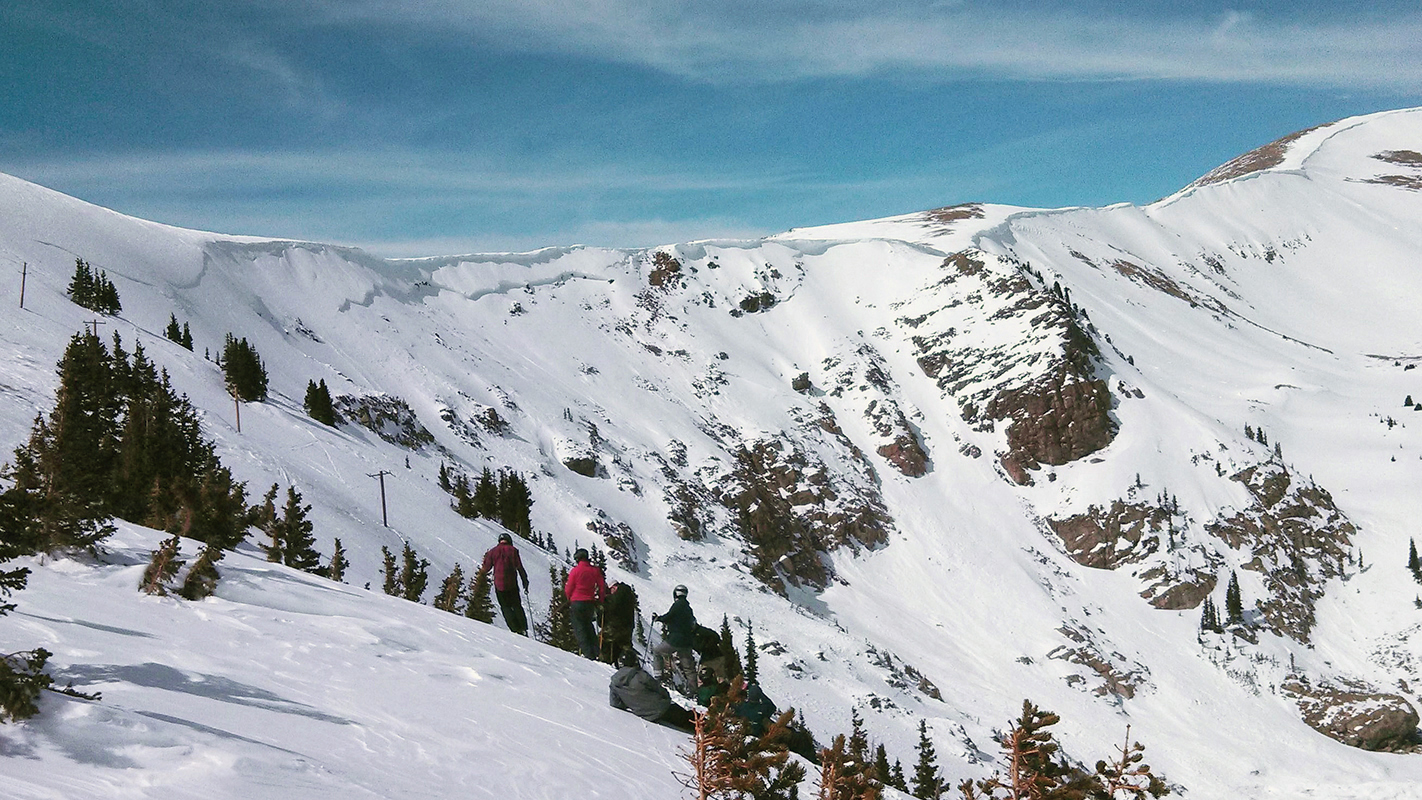Expert avalanche forecasters are describing current avalanche conditions in Colorado as dangerous, rare and risky.
Staff and faculty at Colorado Mountain College Leadville, home to the avalanche science program developed through a partnership with the Colorado Avalanche Information Center, see these precarious conditions as an opportunity to spread awareness. Through March 3, CMC Leadville will be tweeting avalanche safety facts and figures to spread awareness about backcountry safety, under the hashtag #CMCAviAware posted to the @cmcleadville Twitter account.
CMC Leadville’s avalanche science program, launched in 2017, was created through a partnership between the college and the CAIC. The program has expanded educational opportunities for avalanche professionals, like ski patrollers, rescue groups and outdoor leaders. Students observe and analyze snow pack conditions throughout the curriculum, including the exceptionally dangerous snow pack year that Colorado has experienced in the 2017-18 season.
“We have very tricky conditions right now,” said Ethan Greene, director for the CAIC and a faculty member in CMC’s avalanche science program. “This thick, hard upper layer of snow makes it so we can ski, snowboard and snowmobile across it without much of an issue, but if you hit just the right spot, you will start an avalanche. And because there’s this thicker, harder layer on top, it ends up triggering much bigger and more destructive avalanches.”
The unique conditions in large portions of the central and southern mountains should cause alarm for backcountry users, experts say. Recent storms and new snow have exacerbated the risk for deadly “persistent slab” avalanches. North- and east-facing slopes at higher elevations are most dangerous.
“In the Sawatch Range,” said Brian Lazar, deputy director for the Colorado Avalanche Information Center and an instructor in CMC’s avalanche science program, “small incremental loading from continued storms is slowly building larger slabs on top of fragile weak layers near the ground. Triggering an avalanche large enough to bury a person is a distinct possibility, with east-facing slopes at higher elevations the most worrisome. The Monarch Pass area is most dangerous, with around a foot of recent new snow.”
Colorado Mountain College Leadville is a center for avalanche education in central Colorado. In addition to the professional-based avalanche science program, CMC offers courses that can teach backcountry recreationists how to recognize unstable snow conditions and avoid dangerous terrain. Due to the growing popularity of backcountry recreation, CMC’s avalanche safety classes fill quickly. Visit coloradomtn.edu/classes to search for CMC course availability or avalanche.state.co.us/education for CAIC avalanche education opportunities.
Learn more about the avalanche science program at Colorado Mountain College Leadville at coloradomtn.edu/avalanche-science.
